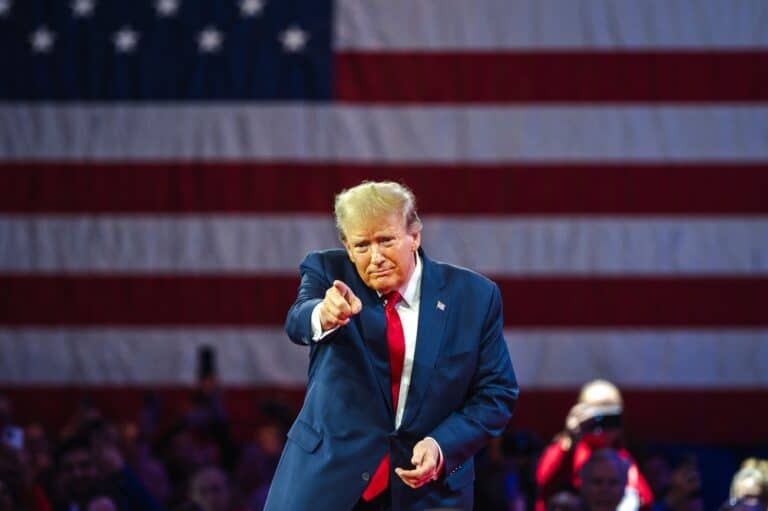While the European Union recently reached an agreement with the United States on a uniform import tariff of 15 percent on semiconductors and pharmaceutical products, among other things, US President Donald Trump has opted for a much tougher stance.
On Wednesday evening, he announced from the White House that the US will impose a 100 percent import tariff on chips. However, companies that are willing to manufacture on US soil, or have demonstrable plans to do so, will be eligible for an exemption. This development was reported on by Reuters.
The announcement was made during a press conference attended by Apple CEO Tim Cook. Trump said that Apple is increasing its investment in the US manufacturing industry with an additional commitment of $100 billion. This is on top of a previously announced investment plan of $500 billion, spread over four years. According to analysts, this commitment is largely in line with Apple’s existing strategic plans, but the White House sees it as confirmation that Trump’s economic policy is working.
Heavy penalties for breaking promises
Trump indicated that he would exempt companies that actually build in the United States from import tariffs. The president also warned explicitly that he would not tolerate promises that were not actually fulfilled. If a company indicates that it will produce in the US but ultimately fails to do so, the full tariff will still be imposed retroactively.
The tariff measure is part of Trump’s broader aim to bring industrial production back to the US and to reduce dependence on foreign suppliers. Major chip manufacturers such as TSMC appear to be largely unaffected. They are already building production facilities in the US. Nvidia, which works with TSMC and is investing billions in US projects, is also likely to be exempt from the measure. South Korea expects companies such as Samsung and SK Hynix to be exempt from the high tariffs. They have bilateral trade agreements with Washington.
Uncertainty in Europe
In Europe, the announcement led to mixed reactions on the stock market. ASML shares initially fell in after-hours trading but quickly recovered. Chip manufacturer NXP fell by 1.3 percent. The question is how European companies will be affected in the future. Especially now that the previous deal with a 15 percent tariff may not outweigh the stricter line Trump is taking on non-US production.
